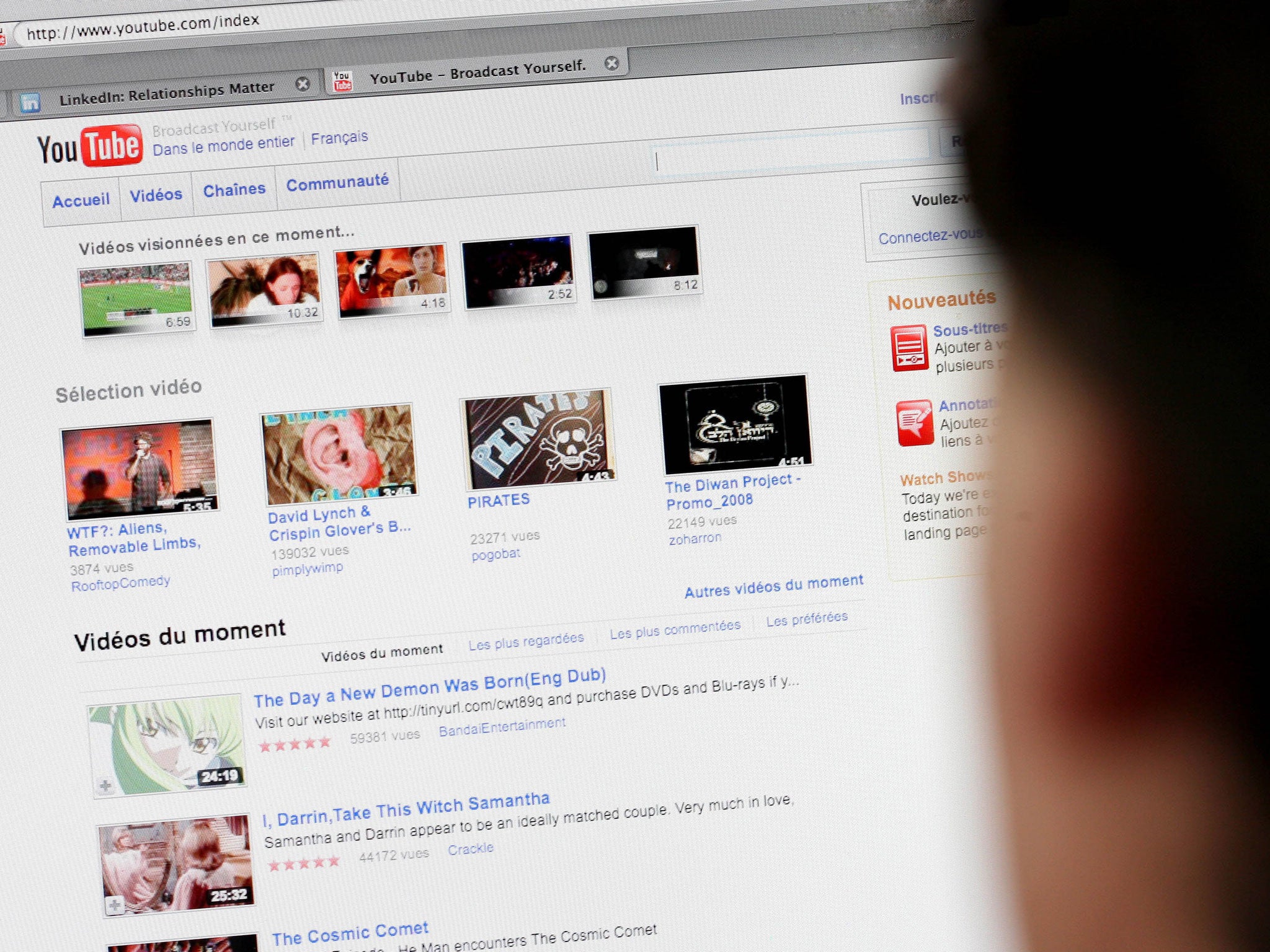Online video rights: You can copy it, as long as you make 'em laugh
New exemptions to copyright law will allow satirists to use music, literature and images online

Your support helps us to tell the story
From reproductive rights to climate change to Big Tech, The Independent is on the ground when the story is developing. Whether it's investigating the financials of Elon Musk's pro-Trump PAC or producing our latest documentary, 'The A Word', which shines a light on the American women fighting for reproductive rights, we know how important it is to parse out the facts from the messaging.
At such a critical moment in US history, we need reporters on the ground. Your donation allows us to keep sending journalists to speak to both sides of the story.
The Independent is trusted by Americans across the entire political spectrum. And unlike many other quality news outlets, we choose not to lock Americans out of our reporting and analysis with paywalls. We believe quality journalism should be available to everyone, paid for by those who can afford it.
Your support makes all the difference.Comedians and YouTube pranksters will be able to use clips of films and television shows to poke fun without having to worry about breaking the law, the Government announced today.
In an update to the rules on rights to licensed moving images, music and literature, the Department for Business said that exemptions to copyright would be granted for those engaging in “parody, caricature and pastiche”.
The move is likely to see a further increase in the trend for home-made video “mash-ups” as well as making it easier for broadcasters to source clips for comedy shows. In another reform, consumers will also be given the legal right to transfer books and music they have bought on to other digital devices.
The Government made the changes in response to the report Digital Opportunity, a review of existing copyright laws by Ian Hargreaves, Professor of Digital Economy at Cardiff University.
In the review, published last May, Professor Hargreaves, a former editor of The Independent, warned that existing laws on intellectual property were “falling behind what is needed” to stimulate the economy, notably in medicine, where researchers were having difficulty mining data from reports, and in the creative industries.
Noting the craze for redubbed or edited “mash-ups”, he said: “Video parody is becoming part and parcel of the interactions of citizens, often via social-networking sites, and encourages literacy in multimedia expression in ways that are increasingly essential to the skills base of the economy.”
Under the existing “fair-use” rules, short clips of copyrighted images may be used without permission from the rights-holders for news content, but not for comedy. In practice, given the difficulty of enforcing those rights in the digital age, many film-makers stop trying to ban mash-ups, which happened in the case of the 2004 film Downfall, about Adolf Hitler’s last days, which has been mercilessly re-dubbed for parody.
The Government said it would permit people to copy purchased digital content to any medium or device they own, providing it was for their own use. This means people will, for the first time, be allowed legally to transfer their music collection or e-books to their tablet, smartphone or to cloud storage.
In other changes, teachers will be able to use copyrighted materials on interactive whiteboards and similar classrooms technologies and medical researchers will be given greater rights to mine data.
The Government estimates the changes could contribute at least £500m to the UK economy over 10 years. Vince Cable, the Business Secretary, said: “We feel we have struck the right balance between improving the way consumers benefit from copyright works they have legitimately paid for, boosting business opportunities and protecting the rights of creators.”
Mike O’Connor, chief executive of Consumer Focus, said: “When consumers have paid for music or other digital material, they should be allowed to copy it for their own use. It is absurd that private copying such as transferring a CD to an MP3 format is a copyright infringement under current UK law.”
The Government plans to introduce the changes in the law next year.
Mash-ups: this year’s popular targets
Nick Clegg
Footage of the Deputy Prime Minister’s apology to voters for breaking his pre-election promise to oppose tuition fees was quickly set to music on YouTube, repeatedly replaying the words “I’m sorry, I’m sorry, I’m so, so sorry”.
Downfall
Internet users have endlessly parodied Hitler’s bunker speech, changing the English subtitles to suggest that they are the words of Manchester United’s manager Sir Alex Ferguson or the Times’s food critic Giles Coren.
Pulp Muppets
Some mischief-makers superimposed the faces of Kermit the Frog, Miss Piggy and other creations from the Muppets on to John Travolta and other actors in Quentin Tarantino’s Pulp Fiction.
Join our commenting forum
Join thought-provoking conversations, follow other Independent readers and see their replies
Comments